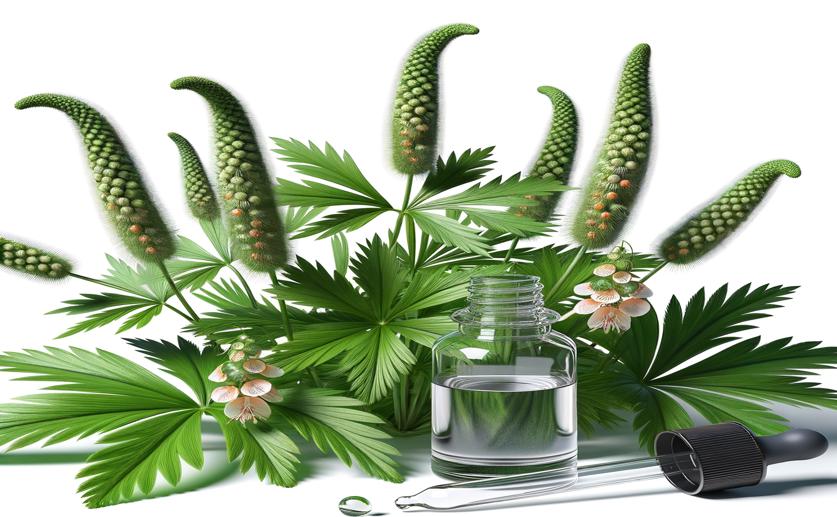Toxicity Testing of Common Horsetail Plant Extract for Traditional Medicine Uses

Image Source: Natural Science News, 2024
Key Findings
- The study by the University of North Bengal evaluated the safety of Equisetum diffusum, a plant used in traditional Indian medicine
- Computational analysis predicted that the plant's compounds have good pharmacokinetic properties and low toxicity
- Laboratory tests showed the plant extract is low-toxic to kidney and liver cells
- Animal studies confirmed the extract is non-toxic up to 2000 mg/kg and safe for long-term use
Equisetum diffusum D. Don, commonly known as 'Himalayan horsetail', has long been used by tribal communities in India to treat conditions such as back pain, bone fractures, dislocations, and arthritis. A recent study conducted by the University of North Bengal has focused on evaluating the safety dose of the whole-plant methanol extract (EDME) of E. diffusum using a combination of in silico, in vitro, and in vivo approaches[1].
The study began with an in silico ADMET (Absorption, Distribution, Metabolism, Excretion, and Toxicity) evaluation to predict the pharmacokinetic profile and toxicity of 47 identified phyto-compounds in EDME. This computational approach is crucial as it allows researchers to predict how the compounds will behave in the human body without initial human or extensive animal testing. The results suggested that these compounds have good pharmacokinetic properties and low toxicity profiles, making them promising candidates for further investigation.
For the in vitro component, the cytotoxicity of EDME was tested on two cell lines: kidney (HEK293) and liver (Huh7) cells. The IC50 values, which indicate the concentration needed to inhibit cell viability by 50%, were found to be 672 ± 15.7 μg/mL for kidney cells and 1698 ± 6.54 μg/mL for liver cells. These values suggest that the extract is low-toxic, as higher IC50 values generally indicate lower toxicity.
To validate these findings in a living organism, in vivo toxicity studies were conducted on Wistar Albino rats. Acute toxicity was assessed following the OECD guideline No. 423 (2002), and sub-acute toxicity was evaluated according to OECD guideline No. 407 (2008). The acute toxicity study revealed that the extract is non-toxic up to a dose of 2000 mg/kg of body weight. Furthermore, the sub-acute toxicity study, which involved daily administration of the extract for 28 days, showed no significant adverse effects on body and organ weights, hematological, biochemical, or histological parameters.
These findings align with previous research on the safety and efficacy of herbal products. For example, a study on Crassocephalum rabens showed that its ethanolic extract did not cause mortality or significant pathological abnormalities in rats, even at high doses[2]. Similarly, the current study on E. diffusum confirms that the extract is safe for consumption, supporting its traditional use for treating inflammation-related complications.
Moreover, the use of in silico ADMET models, such as those employed in this study, has become increasingly important in early drug development. These models help predict the pharmacokinetics and toxicity of compounds, reducing the risk of failure in later stages of drug development[3]. The study on E. diffusum utilized this approach effectively, providing a comprehensive safety profile for the extract.
This research also highlights the importance of documenting and scientifically validating traditional ethnobotanical knowledge. Pteridophytes, like E. diffusum, have been used in traditional medicine for centuries, yet they remain underexplored in scientific research. Previous studies have emphasized the need for more pharmacological and phytochemical studies on pteridophytes to uncover their potential as novel therapeutic agents[4]. The current study contributes to this body of knowledge by providing a detailed safety evaluation of E. diffusum, paving the way for its potential use in modern medicine.
In conclusion, the study conducted by the University of North Bengal provides robust evidence supporting the safety of Equisetum diffusum for treating inflammation-related conditions. Through a combination of in silico, in vitro, and in vivo approaches, the research offers a reliable documentation for the safe use of this traditional medicinal plant, potentially aiding in the development of new therapeutic agents.
MedicineBiochemPlant Science
References
Main Study
1) In silico, in vitro, and in vivo acute and sub-acute toxicity profiling of whole plant methanol extract of Equisetum diffusum D. Don from the sub-Himalayan West Bengal, India, having ethnobotanical uses.
Published 30th August, 2024
https://doi.org/10.1186/s12906-024-04606-y
Related Studies
Related Articles





 25th August, 2024 | Jenn Hoskins
25th August, 2024 | Jenn Hoskins